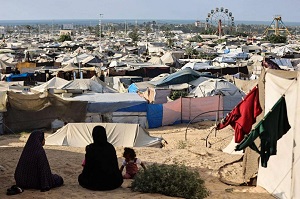Public spending efficiency - By Raad Mahmoud Al-Tal, The Jordan Times
The Prime Ministry recently hosted several meetings, these meetings focused on a roadmap for reforming the public sector. This file is now one of the main pillars of the national modernization tracks, political, economic, and administrative. One session focused on a very important theme: the efficiency of public spending. This is part of administrative modernization, but in fact, it is an economic issue that strongly affects growth and fiscal sustainability.
Public spending in Jordan is one of the most important tools for economic activity. It makes up about 30% of GDP. Any improvement in the efficiency of this spending will directly lead to stronger growth, more jobs, and better financial stability. Spending efficiency is not only about cutting costs or reducing waste. It is about changing government priorities so that every dinar spent gives the highest possible return. This return can come from supporting growth or improving the quality of public services. What matters is not just the size of spending but also its quality.
The economic standards that define spending efficiency are now clearer. The first is economic effectiveness. This means public money should create real results in growth and productivity. The second is impact on economic growth. This is measured by the ability of public projects to produce output and create more jobs. A third is fiscal sustainability. Spending must be managed carefully so that debt does not grow too much and deficits do not widen.
Another standard is efficiency in resource allocation. This means spending must be directed to priority sectors that give higher returns, such as education, healthcare, and infrastructure. It should move away from unproductive or consumptive spending. Social equity is also very important. Public spending must help reduce gaps between groups of people and different regions. The multiplier effect is another key measure. It shows how government spending can encourage private consumption and investment, and how it can create a stronger economic cycle. Flexibility is also essential. It means fiscal policy must be able to adapt to shocks and use spending as a tool to support the economy during downturns.
These standards are not just theories. They are practical tools to evaluate government performance. They connect spending with results, not only with inputs. For example, we can measure the return on social spending through indicators in education and health. We can also measure the impact of capital projects by their contribution to GDP or their ability to attract investment. This approach makes fiscal policy more transparent and more accountable to citizens.
The meeting at the Prime Ministry, attended by the Minister of Public Sector Development, showed that the reform roadmap is no longer limited to traditional administrative changes. It goes beyond reducing bureaucracy or improving procedures. It now represents a comprehensive framework that redefines the link between public administration and the economy. Improving the efficiency of current spending means reducing waste in subsidies and wages without undermining social justice. Improving the efficiency of capital spending means turning public projects into real engines of long-term growth.
Making spending efficiency a main part of administrative modernization, together with creating a “Public Spending Efficiency Index,” shows clear official awareness. It shows that institutional reform cannot be separated from economic reform. If the government applies these standards as clear, practical, and transparent policies, the result will go beyond fiscal discipline. It will also increase confidence in the Jordanian economy, encourage both local and foreign investment, and strengthen fiscal sustainability.
In the end, public sector reform is not merely an administrative goal; it is also an economic project. It connects financial efficiency with social equity and sustainable growth. If the roadmap is implemented with seriousness, it could mark a true turning point, opening the way to a new phase of good governance and comprehensive development.
Raad Mahmoud Al-Tal is head of Economics Department, The University of Jordan




